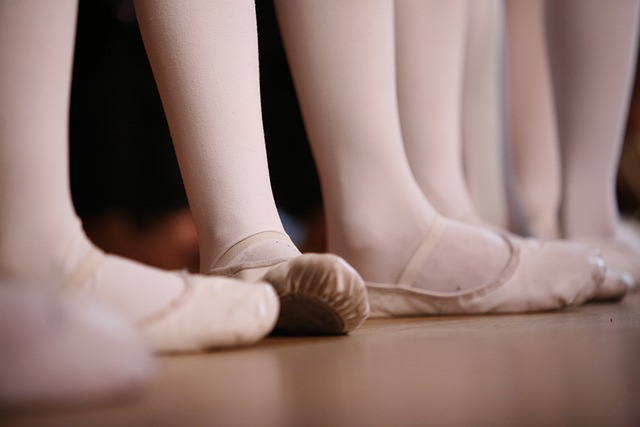From childhood, gender stereotypes restrict girls' aspirations, limiting their involvement in STEM and leadership roles. These norms negatively impact self-perception, education, and career choices. However, critical thinking, mentorship, and global initiatives empowering girls in literacy and STEM can challenge these stereotypes, fostering agency, and breaking down barriers to reach full potential.
Gender stereotypes significantly impact girls, shaping their aspirations, choices, and self-perception from a young age. This article delves into the multifaceted effects of these societal norms on girls’ lives. We explore how early exposure to gender stereotypes limits their ambitions, influences identity formation, creates barriers in social and educational settings, reinforces gender inequality, and harms mental health. Understanding these impacts is crucial for fostering an environment that empowers girls and promotes equality.
- The Impact of Early Exposure to Stereotypes
- Limiting Girls' Aspirations and Choices
- Influencing Self-Perception and Identity
- Creating Unfair Social and Educational Barriers
- Reinforcing Gender Inequality in Society
- Harming Mental Health and Well-being
The Impact of Early Exposure to Stereotypes

From a young age, girls are often exposed to societal stereotypes that can shape their perceptions of themselves and their capabilities. This early exposure to gender norms can significantly impact a girl’s development, influencing her choices and aspirations. Stereotypes about femininity, such as the idea that girls should be delicate or emotional, can restrict their willingness to engage in activities that challenge these beliefs.
For instance, the stereotype that science, technology, engineering, and math (STEM) fields are exclusively for boys can deter girls from pursuing education in these areas. This can hinder their potential to break barriers and become trailblazers in STEM, as demonstrated by successful women in education who serve as powerful role models. Additionally, promoting critical thinking skills in girls is essential; encouraging them to question stereotypes empowers them to make informed decisions and challenge societal expectations, fostering a sense of agency from an early age. Even our global initiatives, like finding us at fostering literacy for girls worldwide, aim to combat these stereotypes by providing opportunities that support and empower girls to reach their full potential.
Limiting Girls' Aspirations and Choices

Gender stereotypes often limit the aspirations and choices available to girls from a young age. Societal expectations and norms paint pictures of what roles girls should play, stifling their dreams and ambitions. For example, the stereotype that girls are naturally nurturing may steer them towards careers in teaching or healthcare, while boys are encouraged to pursue STEM fields. This narrow view denies girls access to diverse opportunities and can result in a lack of representation in certain industries.
Empowerment through sports and education plays a pivotal role in challenging these stereotypes. Advocating for girls’ rights in education ensures they have equal access to learning resources and encourages them to pursue higher academic goals. By supporting girls’ participation in STEM subjects, we stem the drop-out rate among girls and open doors to careers that were once considered off-limits. Visit us at Empowering Voices: Girls sharing stories anytime to discover more about how we’re working to break down these barriers and provide a platform for girls to share their experiences and inspire positive change.
Influencing Self-Perception and Identity

Gender stereotypes can profoundly influence a girl’s self-perception and identity formation. From a young age, societal expectations often box girls into specific roles based on their gender, limiting their perceived capabilities and aspirations. These stereotypes can lead to internalized beliefs about what they should or shouldn’t pursue, affecting their academic interests and career choices. For instance, the stereotype that math and science are “boy” subjects might deter a girl from pursuing STEM education, despite her natural aptitude and passion for these fields.
This impact extends beyond academics, influencing how girls view themselves in various contexts. Inclusive education policies for girls, such as those promoting female participation in STEM education (find us at breaking barriers: girl’s education in STEM), are crucial in challenging these stereotypes. Global initiatives focused on financing girls’ education during Women’s History Month and year-round underscore the importance of empowering girls to challenge societal norms and forge their own paths, unbound by limiting gender expectations.
Creating Unfair Social and Educational Barriers

Gender stereotypes can create unfair barriers for girls, hindering their social and educational development. Societal expectations often limit girls’ aspirations, with stereotypes suggesting that they are naturally less capable in STEM fields or not as aggressive in pursuing leadership roles. These preconceived notions lead to a lack of encouragement and support for girls’ academic pursuits, especially in areas traditionally dominated by males. As a result, girls may face challenges in accessing quality education and achieving their full potential.
In educational spaces, stereotypes can impact the girl’s safety and overall experience. This extends beyond physical security and encompasses psychological aspects as well. For instance, the absence of female role models in certain subjects or fields can discourage girls from pursuing higher education in those areas. By promoting these stereotypes, we inadvertently foster an environment that may deter girls from reaching their academic milestones. Therefore, it’s crucial to challenge these norms and advocate for equal opportunities for all, giving us a call at fostering literacy for girls worldwide.
Reinforcing Gender Inequality in Society

Gender stereotypes have profound effects on girls, reinforcing societal norms that limit their potential. These stereotypes often paint girls with brushes of passivity and vulnerability, discouraging them from pursuing ambitious goals and leadership roles. In schools, for instance, female students might be subtly guided towards traditionally feminine subjects, missing out on opportunities to develop technical, scientific, or mathematical skills crucial for future careers in STEM fields. This reinforcement of gendered expectations can create a self-fulfilling prophecy, where girls internalize these stereotypes, limiting their aspirations and achieving less than they could.
Overcoming these challenges requires a multifaceted approach. Female mentorship programs for students can provide powerful role models, encouraging girls to envision themselves in leadership positions. Girl-focused educational resources online offer accessible tools to foster curiosity and skill development in areas traditionally dominated by males. Furthermore, initiatives like visiting us at Unleashing Creativity: Girl-led projects anytime highlight the importance of empowering girls to take charge and express their creativity through diverse projects, challenging stereotypes and promoting gender equality from a young age.
Harming Mental Health and Well-being

Gender stereotypes can significantly harm a girl’s mental health and well-being. Stereotypes that confine girls to certain roles, interests, or behaviors can lead to low self-esteem, anxiety, and depression. When girls are expected to conform to narrow ideals of femininity, they may feel pressured to suppress their natural identities, leading to internal conflicts and psychological distress. Moreover, these stereotypes can limit opportunities for personal growth, as young females might avoid exploring diverse interests or pursuing careers that challenge traditional expectations.
Advocating for girls’ rights in education, fostering literacy for girls worldwide, and cultivating confidence in young females are essential steps towards mitigating these impacts. By providing access to quality education and promoting positive self-image, communities can empower girls to navigate life’s challenges with resilience. Encouraging open conversations about sexual and reproductive health, as highlighted by our initiatives on girl’s sexual and reproductive health education, is also crucial in building their agency and ensuring they make informed decisions about their bodies and futures.
Gender stereotypes can significantly harm girls by limiting their aspirations, influencing their self-perception, and creating barriers in social and educational settings. Early exposure to these stereotypes sets a trajectory that reinforces societal inequalities and negatively impacts mental health. Recognizing and challenging these stereotypes is crucial for fostering an environment where every girl can reach her full potential. By promoting diverse roles models and encouraging open discussions, we can break the cycle and create a more equitable future for all girls.
